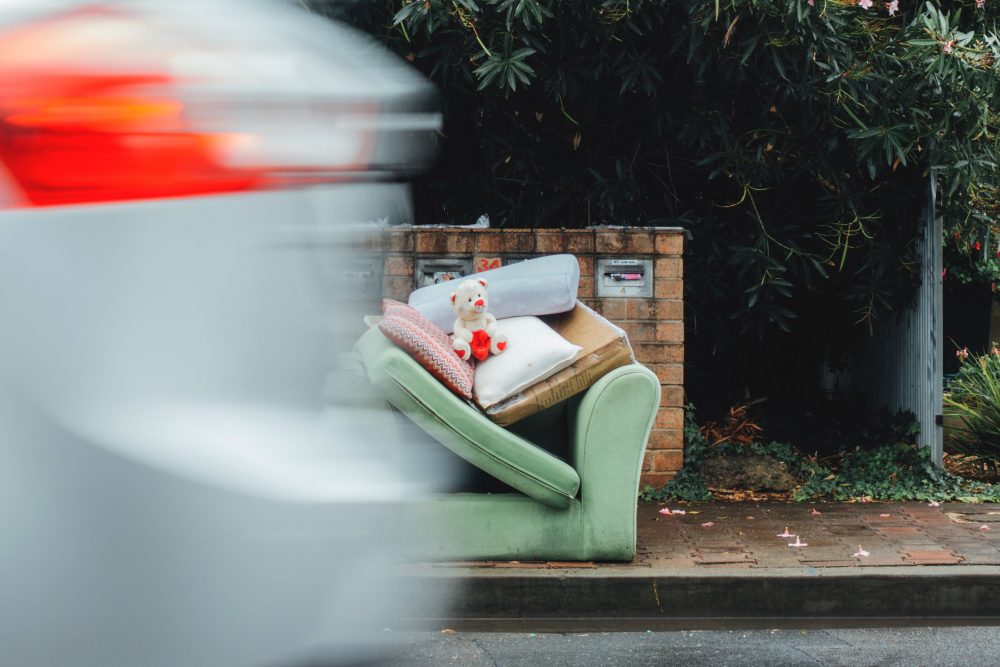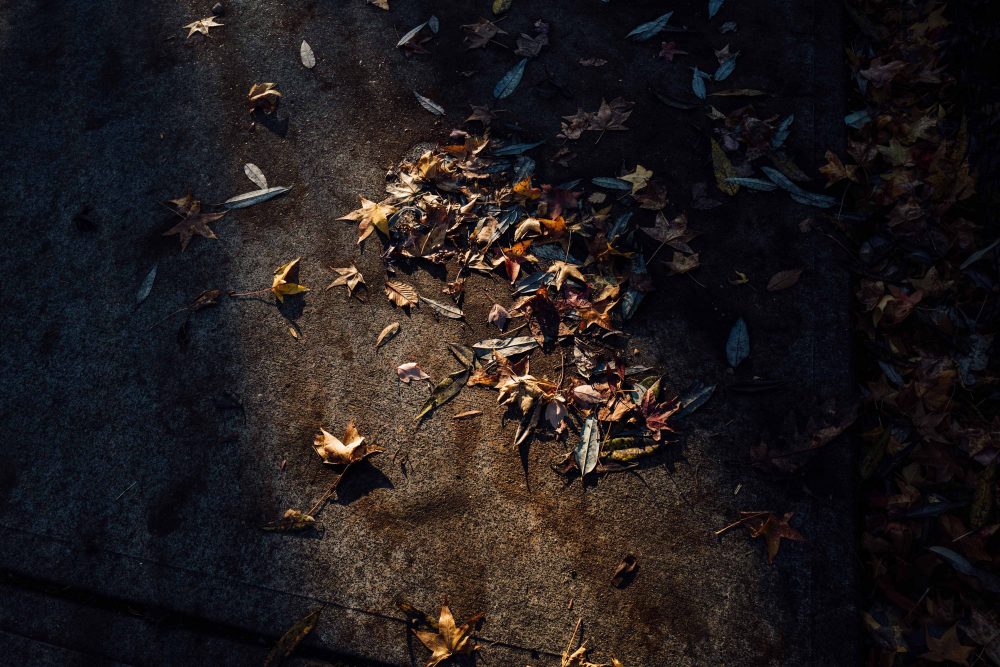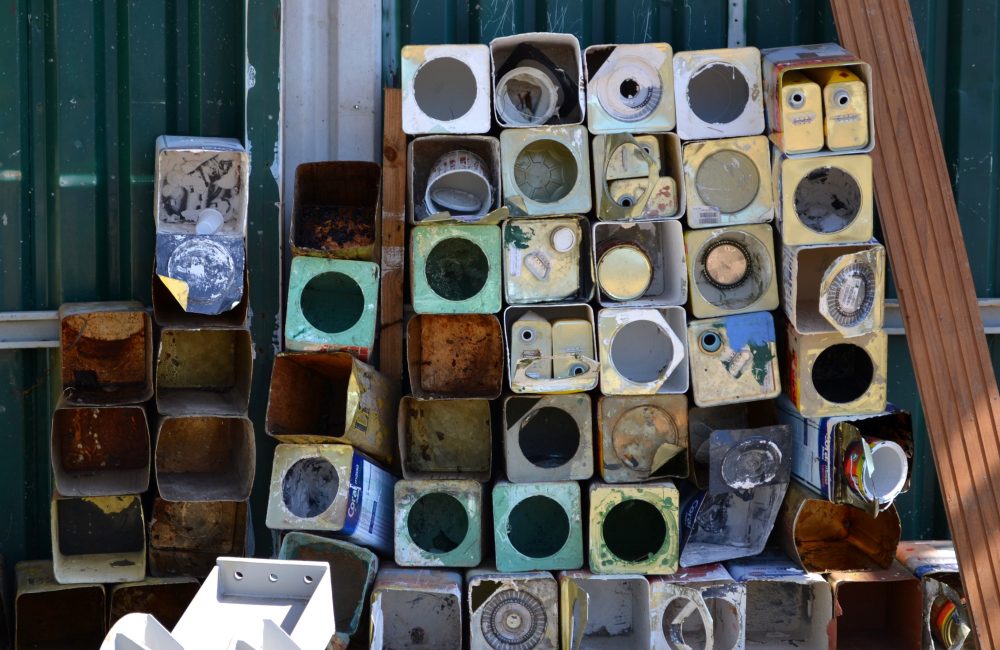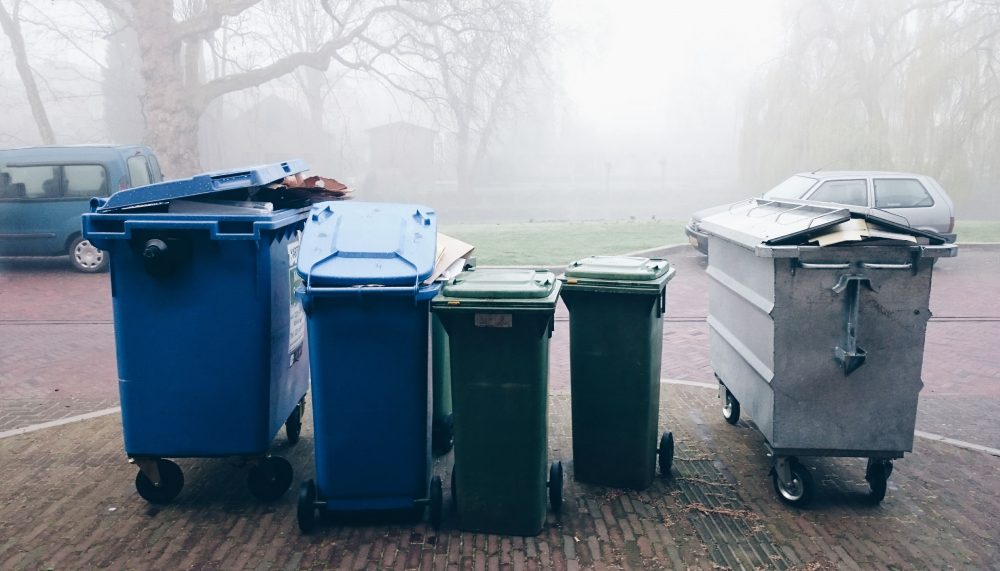Whether we have clothes that don’t fit anymore, old furniture or simply an organic waste, we, citizens of Toronto, are lucky to have many options for safe recycling. However, there could still be some potentially dangerous materials whose disposal is less easy and in some cases even requires professional assistance.
Think twice before considering some of your household objects to be a waste, but after you really feel like letting go, find out how to go about recycling these items in Toronto by reading our guide.
You can use the safe disposal option for the most type of waste - that’s either the Drop-off Depots or Community Environment Days. Household hazardous waste items containing toxic ingredients should be used and disposed of with caution - you can schedule a pickup for them by calling the Toxic Taxi at 311. And for quick information about your disposal options, use Waste Wizard in the right part of this page.
Clothing & Housewares
If you have clothes that you have outgrown or housewares that you no longer use, disposing of these items can be a pain, especially if you don't have a car and there is no drop box nearby. That’s why going with the Diabetes Canada can be a great option. Their Clothesline branch will come right to your door to pick up everything from those unbearable Christmas sweaters to your old pans and pots. Visit their website or call them at 1-800-505-5525 to schedule a free pickup.
Furniture
Consider selling it or taking reusable parts, such as the lock, to an architectural salvage yard. Otherwise, unused furniture may be placed outside one item at the time with the regular garbage collection and it will be picked up as usual. But if you are moving, downsizing or just refreshing your home's look, consider donating unwanted furnishings to shelters or families in need. Goodwill, Furniture Bank, Habitat for Humanity or Red Door Shelter will all help.
Organic Waste
The City of Toronto follows the national trend and offers its residents considerable aid with the processing of their biowaste by supporting two major programs: the Green Bin Program and the Mechanical Leaf Collection Program.
The Green Bin Organics Program is focused on providing households with free bins for organic waste, which turn it into compost. About 30 percent of our garbage consists of organic material such as grass, tree leaves, stems, roots, hedge trimmings, or even fruit and vegetable scraps and coffee grinds from the kitchen, and since the city's waste reduction program hopes to divert as much waste from the landfills as possible, it is only logical to turn attention to organic waste.
The Mechanical Leaf Collection Program may alleviate your worries with unmanageable heaps of dead leaves in your yards if you decide it's an amount that you're unwilling to compost. City employees will notify citizens about the exact dates of the program and collect all the leaves that you store off the travelled edge of the roadway so that you don't need to bother with them anymore. If your area isn't receiving the service, just place your leaves outside your home on your regular yard waste collection date. Please do not use any plastic bags as they cannot be composted.
Asbestos
This is a hazardous insulation material that needs extra care. Be sure to use a face mask and gloves when handling. Put it in secured double plastic bags to prevent fibres from flying. Although this type of waste is not collected through the City of Toronto programs, you can find many companies handling asbestos waste in Toronto online.
Building Material
The first thing to do here is to separate material that might be sorted to other, more common categories - glass, plastic, wood, metal. You also have the option to sell coherent and reusable material (bricks, wood) at a salvage yard. For more information visit Toronto Disposal Services.
Electronics
CRT monitors, televisions and other e-waste can be partially reused when recycled. Your best bet is to contact a company that will buy out these materials and simultaneously wipe all personal data from the devices such as hard drives from old computers. You can also donate your computer simply by dropping it off at reBOOT Canada at 102-550 Bayview Avenue Toronto. This is a non-profit organization that refurbishes old computers and distributes them to charities and others with limited access to technology.
Cell Phones
Cell phones age quite quickly and people renew them usually every two years thanks to popular subscriptions. Consider donating it to someone in your family (especially kids), or people without a home. They'll be happy to use them! If your old cell phone is out of order or cannot be used, take it with you next time to the Toronto Zoo and drop it off at the front entrance. Lear more about their program here. If you don't feel like visiting, you can mail them in as well to the following address:
Toronto Zoo
Cell Phone Recycling Program
C/O Curator of Conservation Programs
361A Old Finch Avenue Scarborough,
Ontario M1B 5K7
Batteries
All batteries contain hazardous material, so please pay attention and recycle them properly. Be sure to use rechargeable batteries as they're much more friendly towards the environment due to the possibility of lasting several hundred cycles instead of just one. For battery recycling in Toronto, contact The Battery Broker, or bring them to Drop-Off Depots and Community Environment Days.
Vehicles
Did you know that old cars, buses or other vehicles can be recycled up to 80 percent? If it isn't repairable anymore, call Carcone's at their toll-free number 1-800-263-2022 and schedule a pickup. Don't forget that you'll need documents of car ownership. If you know about an abandoned car, alert the local council first.
Motor Oil & Paint
Please do not pour motor oil, paints or solvents down your drain or into the sewer. If you have this kind of waste (between 10 to 50 litres/kilograms or max of 24 cans), you can schedule a pickup from Toxic Taxi.
Fluorescent Tubes & Compact Lightbulbs
Compact fluorescents contain dangerous materials such as mercury and therefore should not be disposed of in the trash. If you break a bulb, the Environmental Protection Agency recommends precautions to avoid mercury exposure - clear people and pets from the room and open a window for at least 15 minutes if possible. Avoid vacuuming. Scoop up larger pieces with stiff paper or cardboard, pick up smaller residue with sticky tape, and wipe the area with a damp cloth. Put everything into a sealed plastic bag or sealed glass jar. Many chains, like Home Depot, offer recycling bins for the bulbs. You can also bring them to Drop-Off Depots, Community Environment Day or, if you have approximately between 10 to 50 light bulbs, call a Toxic Taxi.
Metal appliances
Old refrigerators, washing machines, stoves, etc. are considered as a large metal household appliance. Place them right at your curbside on your scheduled Garbage Bin collection day. Also, remove doors where you can.
Medical Supplies & Pills
Old medication and used medical supplies fall under the category of Household Hazardous Waste. Needles, injectors, pre-filled pens, etc. can be returned to your local pharmacy. You can also bring them to Drop-Off Depots, Community Environment Day or, similarly to liquid HHW, call a Toxic Taxi. As for disposable towels, tubing, gloves and such, you can simply place them in your garbage bin.
LR00LR







Recycling CRT monitors and e-waste is a smart way to reduce waste while giving back. Companies that buy these materials often ensure secure data wiping, and donating to re BOOT Canada is a great option to support tech access for those in need. A win-win for the environment and the community!